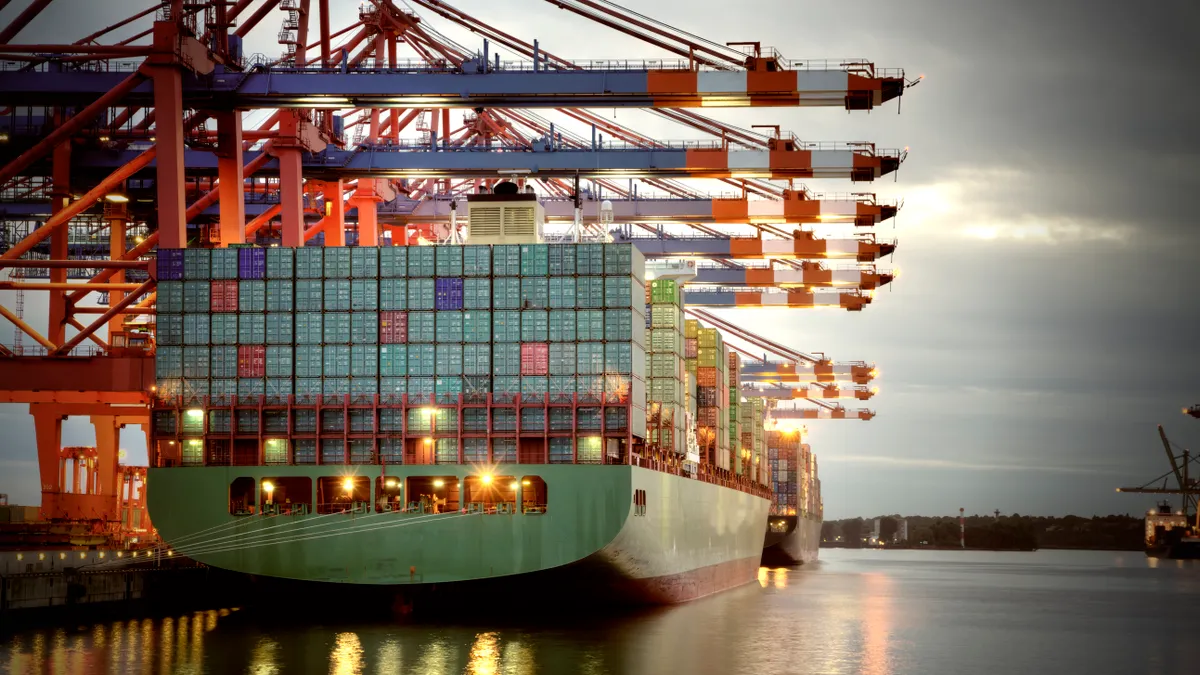Dive Brief:
- The Federal Highway Administration (FHWA) announced on Tuesday that the Port of Virginia has won an Advanced Transportation and Congestion Management Technologies Deployment (ATCMTD) grant of $1.55 million, according to a port press release.
- The funds, which will be matched by those from the port, are earmarked for further development and implementation of a reservation system for trucks and similar vehicles at its terminals.
- To develop a successful reservation system, the port has worked with regional trucking firms for the past two years. As yet, there is no start date established.
Dive Insight:
Port traffic delays are a serious impediment to the supply chain and the drivers who contribute.
Our aging roads support more traffic than they were originally built to handle, creating significant congestion that costs the trucking industry $63 billion in 2015 and caused 996 million hours of lost productivity. Congestion is an even greater problem at ports, with trucks sometimes stuck for hours waiting for access to cargo containers, known as long dwell times. However, as several ports have worked to install a truck appointment system, turn times have been reduced by at least 45%.
Now the Port of Virginia is joining the truck appointment movement. Citing improved continuity and predictability, as well as driver specific issues such as Hours of Service (HOS), port officials believe the move to install a reservation system is a good one. Truck drivers support the plan.
"The trucking community’s reception to the idea has been positive and that is supported by the fact that we have a cross-section of individuals from that industry as partners in the project," Joseph D. Harris, Senior Director, Media Relations at the Port of Virginia told Supply Chain Dive. " We have listened to their concerns, are taking their input and many are participating in a pilot program that is helping to gauge the effectiveness, usability and benefits of the system."
Clearly, the port is working to serve an important customer: the trucking industry, on which the cargo freight supply chain wholly depends.
Harris adds, "Some important components to the success of this project and acceptance by the industry include: clear communication with the industry about intent and end-goals, educating users at no cost to them, phasing in the steps/components one-by-one and making sure the industry is comfortable before moving on to the next step."
Sounds like a good plan.












